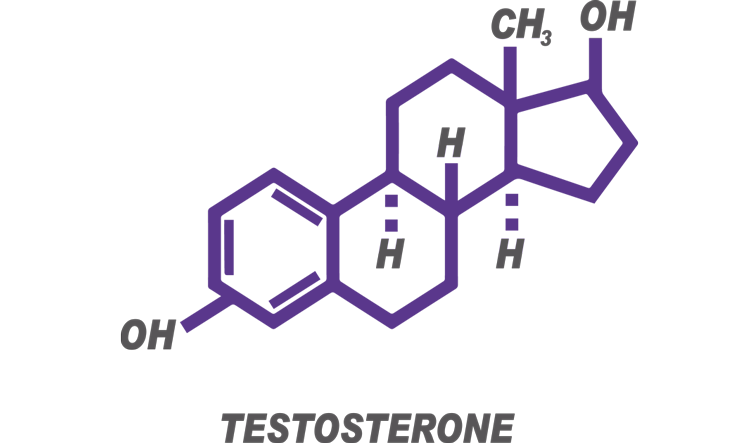

Does Low Testosterone Impact Your Baby-Making Abilities?







There are many stories about men having children well into their seventies, leading us to believe that declining fertility due to ageing is a woman’s problem. But, consider the possibility that these spritely septuagenarians could in fact be an exception to the fertility rule. Because the truth is that fertility issues do indeed increase with age in men, too.
In most men, testosterone levels naturally begin to decrease with age from the mid-30s. With this they can have an array of symptoms, including disturbed sleep, changes in skin and hair. It’s likely they will also see an inability to get the same results in the gym that may have been achieved easily in their twenties.
One thing that low testosterone can also affect is fertility. How? Low T can manifest itself in a number of ways which make it more difficult to conceive. These include:
Difficulty achieving and maintaining erections
Decrease in the volume of ejaculate
Low libido
Low self-confidence
There is also evidence that total sperm count and motility decreases with age; however, it is not yet known whether or not this links to low testosterone levels.
Most men start to feel the signs of testosterone depletion and turn to Google. Perhaps they’ve experienced a lack of interest in sex or a decreased attraction to their partner, along with a number of other symptoms unrelated to sex. After a quick search, the internet will likely reveal a diagnosis of low testosterone levels – so, the patient in question decides to confirm their suspicions by booking a blood test with their GP (just a note: we don’t encourage Googling symptoms, although we know that it’s many patients’ first port of call!).
A typical blood test at your GP’s office will reveal the total amount of testosterone available in your body. The problem with this? It doesn’t provide you with the amount of testosterone that is actually reaching your cells. Much of your total testosterone is bound to the sex hormone binding globulin (SHBG), and because of this, it is not available for your body to use. SHBG is not routinely tested at the GPs.
If your tests show a high SHBG and a high total testosterone; on paper, your results would look great but, despite this, you may still suffer from all the symptoms of low T. Why? Because your free testosterone (which is actually available to your cells) will be low due to large amounts being bound to SHBG.
Our founder, Dr Harpal Bains, has developed very specific protocols for testing and so when you have a blood test with us to check your testosterone, we not only look at the total amount of testosterone, we measure for free testosterone. Free testosterone is the amount available for your cells to utilise.
In conjunction with this, we also look at your oestrogen levels. oestrogen is quite misunderstood in males, and high oestrogen levels in a man can be – wrongly – assumed to be a bad thing. This hormone is actually very important in helping us determine how much testosterone is available in your body. Why? Because quite a lot of testosterone is converted to oestrogen.
We also look at your thyroid gland, because the thyroid is strongly linked to testosterone and fertility. Studies show that both hypothyroidism and hyperthyroidism have adverse effects on male reproductive organs and fertility, including low sperm count and decreased motility. However, this can be corrected when treated for thyroid disease.



Testosterone Replacement Therapy (TRT) has been shown to reverse symptoms of low T by slowly increasing the testosterone levels in the body until they reach the optimal level that is unique to you (usually around 300 to 900 nanograms per deciliter (ng/dL)), at which point patients see a rise in libido and sexual function, energy, erection quality and mood, amongst other benefits.
Dr Harpal Bains comments: “One of the side effects of TRT is that sperm count can be reduced, and although this doesn’t necessarily cause infertility, combine it with the fact that fertility declines with age, and it may mean that it’s a bit harder for you and your partner to conceive. For men who would like to add to their family, and for younger patients who have low testosterone, we factor this into treatment and counteract it by incorporating HCG or clomid in order to help maintain fertility. We find this works well and most of our patients continue to feel good and successfully go on to start a family.”
All TRT treatment is carried out under the supervision of one of our doctors and is carefully monitored. Furthermore, the testosterone we use is biologically identical to that which is produced naturally in the body. How long you need to undergo TRT depends on your age and a number of other factors, and will be individual to you. This will be discussed with you at your consultation. Find out more about TRT here.
You may also be interested to read our Testosterone Series:
Part 1. An Overview for Both Men and Women
Part 2. Testosterone, Muscle Mass and Fat
Part 3. Libido and Sexual Dysfunction
Part 4. Let’s Talk About Nebido, Sustanon and Enantate
If you’re interested in reinvigorating your sex life or are concerned that low T is affecting your chances of conception, we can help. Call us on 020 7096 5475 to book in for a remote consultation or alternatively you can email us at help@harpalclinic.co.uk. We are able to offer testosterone replacement therapy on a remote basis.